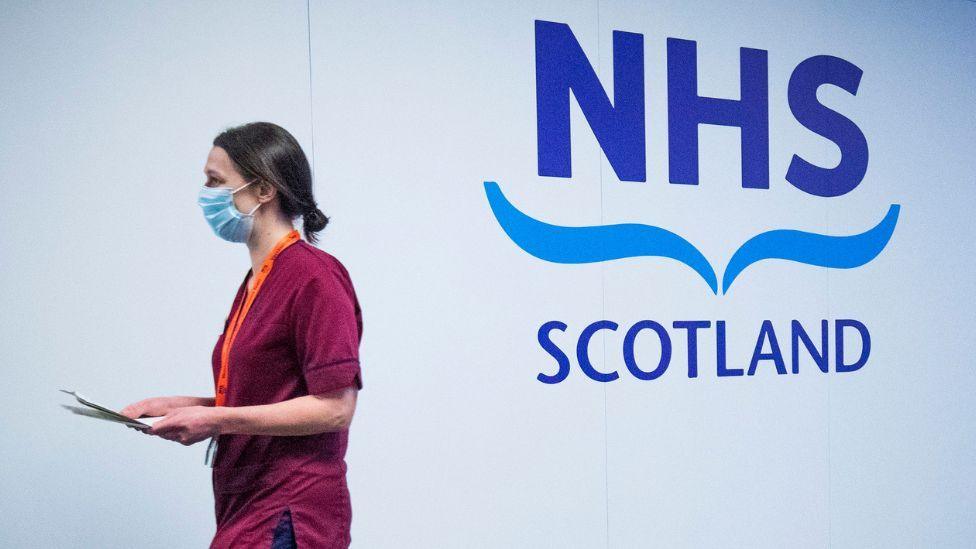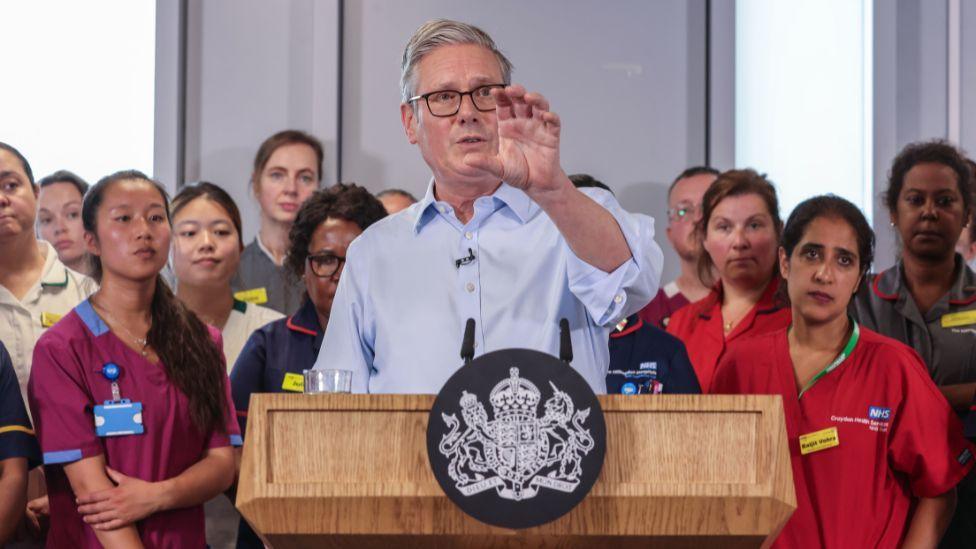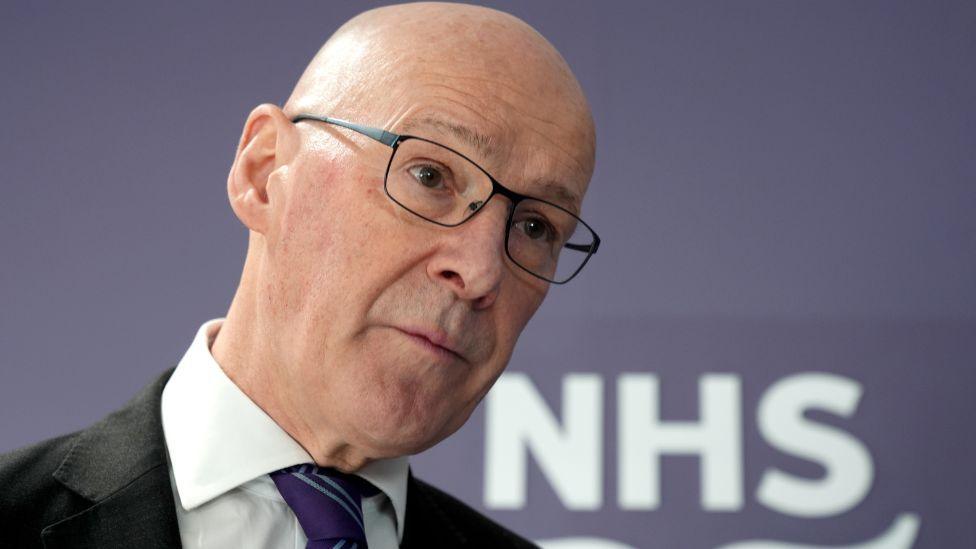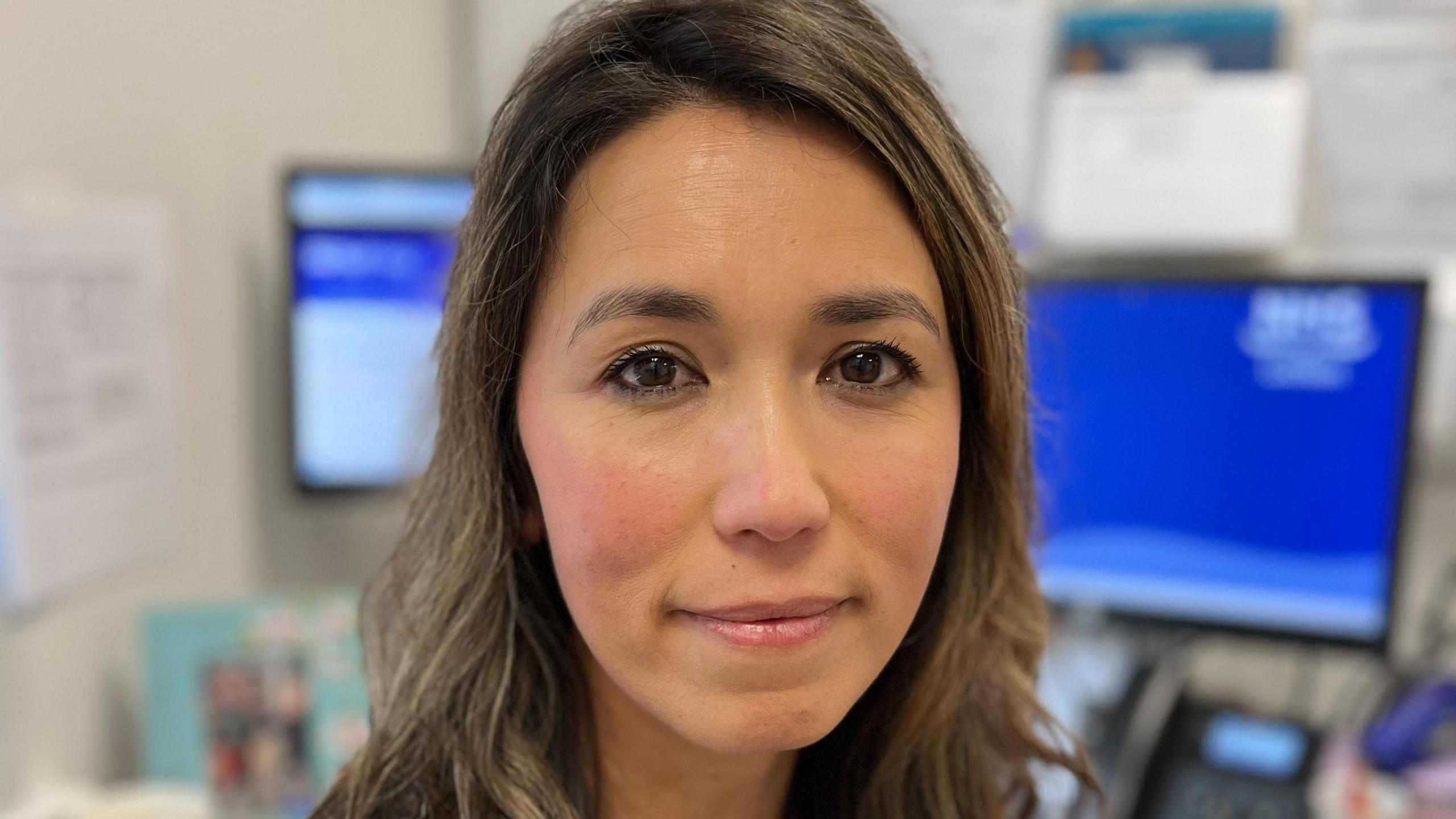How does Starmer's NHS plan compare to Scotland's?

A doctors union has claimed that NHS Scotland is "dying before our eyes"
- Published
There are plenty of familiar themes in long-term plans for the NHS in Scotland and England.
Prime Minister Sir Keir Starmer has announced his vision to "fundamentally rewire" the NHS south of the border.
It includes plans to create neighbourhood health services, train more GPs and integrate AI into the system.
First Minister John Swinney previously unveiled similar priorities to the UK government: to move care closer to home to take the pressure off hospitals, make it easier to see a GP, cut waiting times and a create a "digital front door" to healthcare.
Sir Keir said the neighbourhood health hubs in England would open six days a week, 12 hours a day, and would provide a range of healthcare services "right on people's doorsteps".
Scotland already has community health centres. Tests, vaccines and minor procedures can take place locally, and in some areas there are community link workers who can help patients with social issues like access to housing.
Swinney started the year by announcing an expansion of Hospital at Home to create what the government called "virtual wards", where specialist nurses and other healthcare professionals deliver hospital-level care to patients in their own home.
There are plans in England to develop an app that will allow patients to book appointments, order prescriptions and access healthcare 24 hours a day.
A different Scottish app – the Digital Front Door – is due to be rolled out next year and will include social care. However, you will only be able to view hospital appointments, not book them.

Sir Keir Starmer has announced plans to "rewire" the NHS south of the border
Differences continue with pay deals for NHS staff. Workers in Scotland, excluding doctors and dentists who negotiate separately, have agreed a 4.25% rise this year. In England and Wales the government has offered 3.6%.
This is seen as a positive move to encourage recruitment and retainment, but with no additional money coming from Westminster to fund the difference, it will mean difficult decisions on what has to give to pay for it.
All of this is against a backdrop where there are warnings from the doctors union BMA Scotland that the NHS is "dying before our eyes".
More people than ever before have to wait more than a year to see a specialist or start treatment.
Scotland recorded the highest ever number of days spent in hospital by patients who could go home but are unable to because of social care pressures - what we know as delayed discharge.

John Swinney announced his priorities for the NHS in January
This all impacts patients. I have spoken to many people facing agonising waits who have had to live on strong painkillers or give up work.
The Scottish government has allocated £21bn to the health and social care budget this year.
But despite record levels of funding, there are plenty of stark warnings from doctors, nurses and watchdogs that the NHS in its current form is unsustainable.
More people than ever before accessed private hospital healthcare in Scotland last year, with some warning of a two-tier NHS where those who can pay are treated quickly, and those who cannot are languishing on waiting lists.
The Royal College of Nursing has said there are still not enough staff to deliver safe care to patients. And Unison has criticised the government for failing to set out plans to improve social care.
GPs have also told BBC Scotland News that despite more people training to be family doctors, they cannot afford to take them on.
For both nations there are plenty of ambitions on the table to transform the NHS, but there continue to be many difficult challenges to overcome.
Related topics
- Published20 March

- Published24 June

- Published31 March
